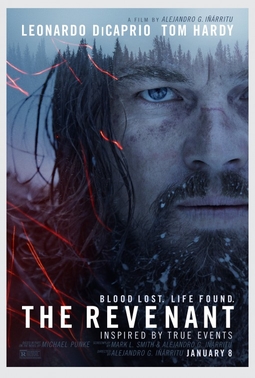Cast: Christian Bale, Cate Blanchett, Natalie Portman, Brian Dennehy, Antonio Banderas, Frieda Pinto, Wes Bentley, Isabel Lucas, Teresa Palmer, Imogen Poots, Ben Kingsley (voice). Screenplay: Terrence Malick. Cinematography: Emmanuel Lubezki. Production design: Jack Fisk. Film editing: A.J. Edwards, Keith Fraase, Geoffrey Richman, Mark Yoshikawa. Music: Hanan Townshend.
Two films kept coming to mind as I watched Terrence Malick's Knight of Cups: Federico Fellini's La Dolce Vita (1960) and Andrei Tarkovsky's Mirror (1975). Fellini's film because the journey of Malick's protagonist, Rick (Christian Bale), through the decadence of Hollywood and Las Vegas echoes that of Marcello's (Marchello Mastroianni) explorations of Rome. Tarkovsky's because Malick's exploration of Rick's life exhibits a similar steadfast refusal to adhere to a strict linear narrative. Most of us go to movies to have stories told to us. Our lives are a web of stories, told to us by history and religion and science and society, and most explicitly by art. We tend to prefer the old linear progression of storytelling: beginning, middle, end, or the familiar five-act structure of situation, complication, crisis, struggle, and resolution. But artists tend to get weary of the straightforward approach; they like to mix things up, to find new ways of storytelling. The modernist novelists like Joyce and Woolf and Faulkner eschewed linearity, and filmmakers have tried to take a similar course. They have the advantage of working with images as well as words. So Malick, like Tarkovsky and Fellini and others, experiments with editing and montage to meld images with language and gesture to probe the psychological depths of human character and experience. The problem with experimentation is that experiments fail more often than they succeed. Some think that Knight of Cups is a successful experiment, but most critics and much of the film's audience seem to disagree, to judge from, for example, a 5.6 rating on IMDb. Knight of Cups spent two years in post-production and there are four credited film editors, which suggests that Malick over-reached himself. For me, what was lost in the process of making the film was a clarity of vision. Granted, the lives of human beings are messy, loose-ended things, but what do we depend on artists to do but try to make sense of them. I think Malick lost sight of his protagonist, Rick, in trying to interpret his life and loves through the film's odd amalgamation of John Bunyan's Pilgrim's Progress and the Major Arcana of the tarot pack and then overlaying it with a collage of images provided by Emmanuel Lubezki's camera. We glimpse Rick through filters, grasping for moments that will resolve into something substantial about him, his problems with his family and with women. And for all the casting of fine actors like Bale and Cate Blanchett and Natalie Portman, the production negates their attempts to create characters. In fact, their starriness works against them: Instead of being drawn into the character of Rick or Nancy or Elizabeth, we're removed from them by the familiarity of the actor playing them. I understand what admirers of the film like Matt Zoller Seitz are saying when they proclaim, "The sheer freedom of it is intoxicating if you meet the film on its own level, and accept that it's unfinished, open-ended, by design, because it's at least partly concerned with the impossibility of imposing meaningful order on experience, whether through religion, occult symbolism, mass-produced images and stories, or family lore." But I wonder if that's enough to make an experiment successful. I came away from Knight of Cups knowing nothing more about its characters than I did before I met them.
















